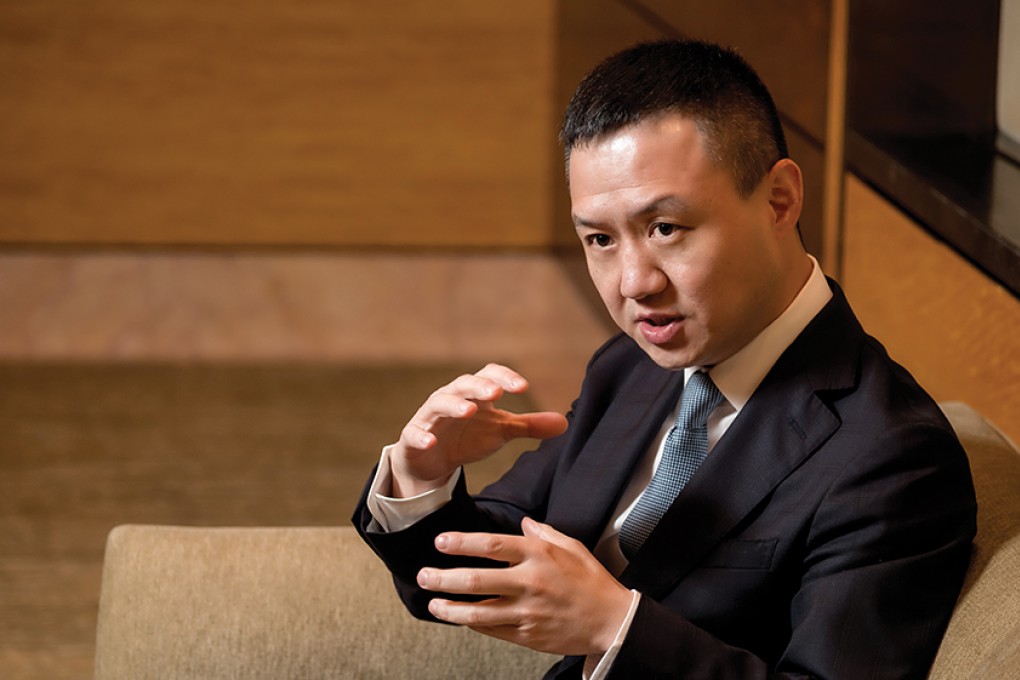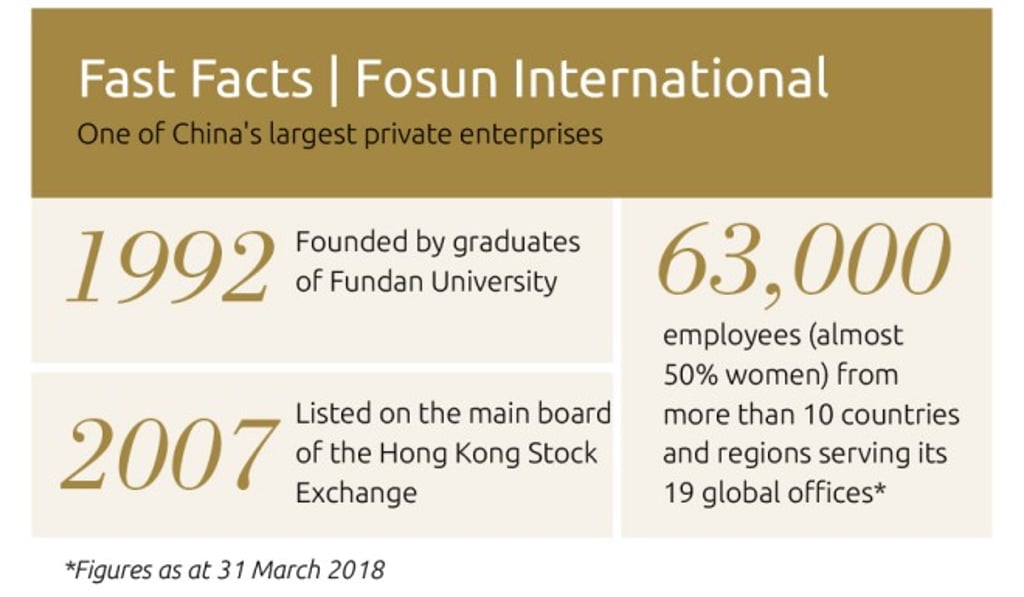
[Sponsored Article]
The results speak for themselves. Fosun International, a multinational company, with its roots in China, has a strong track record of making overseas acquisitions, accelerating the growth of subsidiaries and generating significant returns. What the world does not usually see is its philosophy to manage its rapid-growing business portfolio across five continents. We sat down with Mr Xu Xiaoliang, Executive Director and Co-president of Fosun International, to find out about its globalization strategy and talent management system behind the scenes.
A company that was formed in the early 1990s with RMB38,000 (app. USD6,100) in capital by Fudan University classmates is today one of the most diversified multinationals in China, with total assets that exceed RMB530 billion (app. USD85 billion). As a multinational company with its roots in China, the group’s business focuses on three ecosystems in health, happiness and wealth. Its business portfolio is closely related to family life which spans across pharmaceuticals & healthcare, tourism & culture, fashion & happiness, insurance & comprehensive financial services.
Expansion roadmap
Commenting on its globalization strategy, Xu Xiaoliang, Executive Director and Co-president of Fosun International, gives an example of how Fosun entered into the Japanese property market. Fosun acquired IDERA Capital Management Ltd in 2014, when it was previously not a major player in the property investment and management business.
Since then, backed by Fosun’s financial prowess, IDERA has become a top-tier player. Several buildings in Tokyo, and a major vacation resort in Hokkaido, are among IDERA’s property portfolio. Localization played a part in its success, Xu says: “We always make sure there is a solid, experienced team in the country.”
The senior management team of the acquired business are given financial incentives and have the opportunities to join Fosun as global partners. Xu says IDERA, like many other high return-on-investment acquisitions, benefits from Fosun’s flat decision-making mechanism.
“Once the overall direction is set, day-to-day operational decisions are made locally,” he says. “When it comes to important strategic decisions or investment decisions, they go to the board. We have a rule – decisions are made within 24 hours,” Xu says.
The board’s decision-making is supported by teams from headquarters that have regional specialties, such as in the Asia Pacific regions. These teams can be mobilized quickly to coordinate between the board and the subsidiary.
IDERA is one among many companies in Fosun’s global ecosystem. Fosun’s 26 years of growth started with outbound deals in Western Europe and North America, Xu says. The company then identified other key countries and cities, such as Korea and Singapore in Asia, as well as northern and eastern Europe. In recent years, Fosun has been active in emerging markets like Brazil, Russia, India and Africa.
“The importance of the China market has been driven by its 1.3 billion population, as anything multiplied by 1.3 billion becomes unstoppable,” Xu says. “Now China, India and Africa have a combined population of 4 billion, accounting for two-thirds of the world.”
There are opportunities in the Indian and African economies that can be readily tapped by Fosun. “They are in a different era from us,” Xu says.
Xu uses the example of property markets decades ago, when Hong Kong had a more mature business model for luxury residences than the mainland. “When you take a proven business model and apply it in China, there is an instant market for it. This is the type of opportunity we see in India and Africa,” he says.
Cross-cultural management
Fosun’s presence in diverse regions means that there is an emphasis on cross-cultural management. Xu highlights the importance of exploring a common ground in talent management, such as in performance evaluation. “A true achiever must have an entrepreneurial spirit and a good attitude. That we can all agree on,” he says. “With that common ground in place, we can integrate differences between cultures.”
In today’s technology driven economy, team structures and communications have been fundamentally changed, Xu notes. Earlier management concepts mandated one team leader could effectively manage a maximum of seven people, but today one person can have 60 to 70 people report to him or her simultaneously, he says. “This means one person can consolidate the wisdom of 60 to 70 people. This is all enabled by technology such as DingTalk [an enterprise messaging app] or video conference calls,” he says.
Apart from investing in businesses globally, Fosun is investing in the next generation through encouraging young entrepreneurs. For example, the Fosun Technopreneur Competition was held in association with HKUST last year. In early 2018, the startup accelerator program known as Protechting launched its third edition in Lisbon, Macau, Brussels, Frankfurt and London, focusing on startups developing technologies for the insurance, finance and healthcare sectors.
Xu believes the sky’s the limit for young people deploying new technologies to solve problems. He looks for simple qualities in potential Fosun team members – their drive, their capabilities and their attitude. When driven, young people show how much they really want to contribute, he explains.
“After all, an egg broken by an outside force is food. An egg broken by an inside force becomes life,” Xu says.

The Bund Finance Center is home to Fosun new headquarters in Shanghai

Promoting Entrepreneurship
Founded in 2012, the Fosun Foundation has been set up to inherit cultures, support education, encourage young people to start their own businesses, spread the concept of health, and engage in disaster relief and poverty relief. Since its establishment, the Foundation has launched different projects and initiatives to support the young generation to pursue their entrepreneurial dreams, including our HKUST students. With the generous support from the Foundation, the first-ever HKUST MBA Technopreneur Competition was launched in December 2017. The competition aims to encourage MBA students to form teams of cross-disciplinary to employ their design thinking and business knowledge to solve business problems.